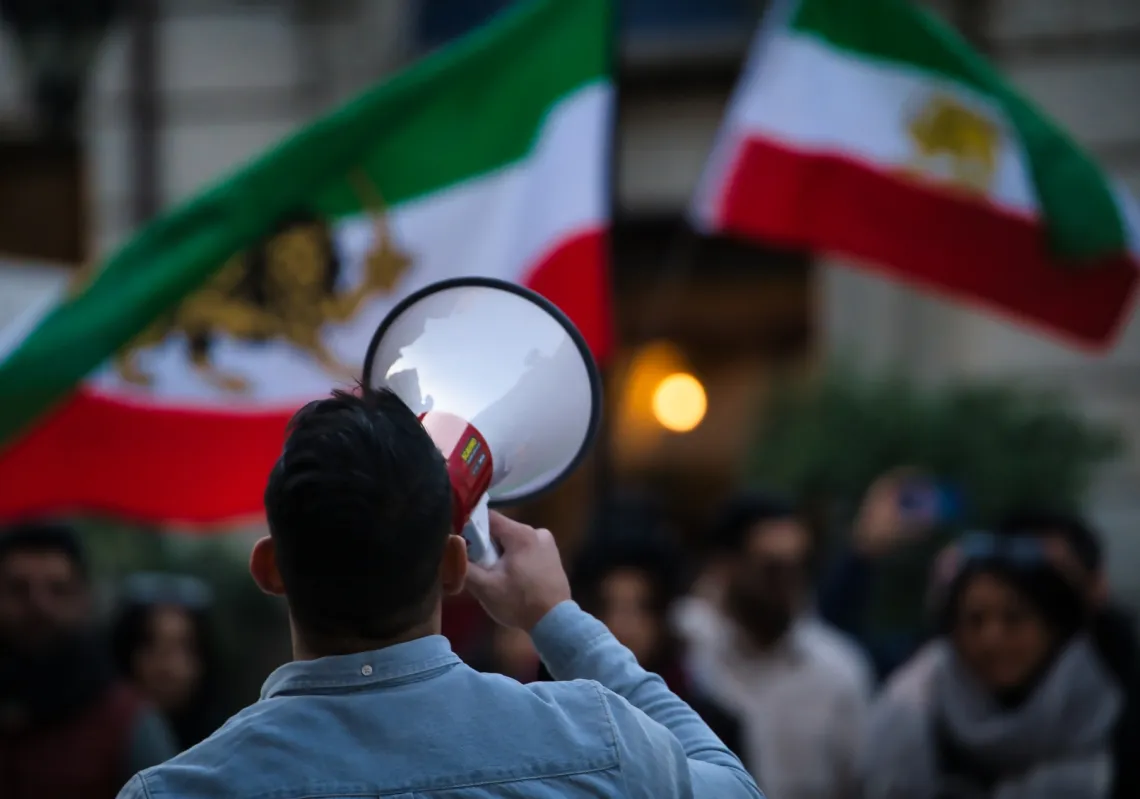 Former US Secretary of State Hillary Clinton delivers her farewell address in the lobby of the State Department on February 1, 2013 in Washington, DC. SOURCE: Chip Somodevilla/Getty Images[/caption]Hillary Rodham Clinton left her job as US secretary of State last week with sky-high approval ratings from her fellow Americans and praise from abroad for revitalizing many of the bilateral relationships that had soured during the presidency of George W. Bush. She certainly ended her tenure as America’s top diplomat not with a whimper, but with something more like a bang—even two bangs.
Former US Secretary of State Hillary Clinton delivers her farewell address in the lobby of the State Department on February 1, 2013 in Washington, DC. SOURCE: Chip Somodevilla/Getty Images[/caption]Hillary Rodham Clinton left her job as US secretary of State last week with sky-high approval ratings from her fellow Americans and praise from abroad for revitalizing many of the bilateral relationships that had soured during the presidency of George W. Bush. She certainly ended her tenure as America’s top diplomat not with a whimper, but with something more like a bang—even two bangs.
For one, on her last day at the State Department, thousands of its employees thronged the lobby to send her off with affectionate cheers and whoops. The mostly young crowd reached to shake her hand as she slowly made her way out the door. Hundreds of mobile phones swayed overhead like long-legged flamingos as her admirers snapped souvenir photos.
Clinton thanked her former staffers for their work, telling them she was proud of their dedication and promising to be “an advocate from the outside for the work you do.” If that was a friendly bang, the other was not.
That came on January 23, when Clinton, in her last appearance as secretary of State before a congressional committee, was grilled about the deadly attack on the US consulate in Benghazi in September that killed the US ambassador to Libya, Christopher Stevens, and three other Americans. As one senator badgered Clinton about why initial descriptions of the perpetrators later proved wrong, she lost her temper and flashed her trademark spine of steel.
“With all due respect, the fact is we had four dead Americans,” Clinton said testily, her rock-hard voice rising. “Was it because of a protest or was it because of guys out for a walk one night who decided they’d go kill some Americans? What difference, at this point, does it make?” Next question, Senator? Still, Clinton knows that the Benghazi tragedy, and her department’s failure to protect the consulate, will mar a record that is generally drawing high marks, although some critics say it lacks tangible, concrete results.
Clinton is praised for her high visibility in pushing brand ‘America’ around the world, visiting a record 112 countries and logging almost a million miles. She is credited with doing much to realize the administration’s ambition to be more assertive in Asia in the face of a more assertive China. She also has done more than any previous secretary of State to raise awareness of women’s issues, especially gender violence. The Office of Global Women’s Issues that she created is now a permanent part of the State Department bureaucracy.
But her record does not include any major initiative or enduring accomplishment, analysts say. “Her substantive legacy remains thin, especially when it comes to the Middle East,” wrote Barbara Slavin, a senior fellow at the Atlantic Council, in a commentary for Al-Monitor. Slavin called Clinton “prescient” for foreshadowing the Arab Awakening when she warned a gathering in Doha in January 2011 that Arab states needed to begin serious internal reforms because “the region’s foundations are sinking into the sand.” Since then, the Obama administration has floundered in their responses to fast-developing events in the region and left the Arab-Israeli peace process “in limbo,” wrote Slavin.
Marina Ottaway, a senior scholar and Middle East expert at the Woodrow Wilson International Center for Scholars, reached a similar assessment: “Hillary Clinton has been a capable, energetic secretary of State, but unfortunately she has not been in charge of either designing or implementing a coherent policy in the Middle East,” Ottaway wrote in an email. “For four years, the Obama administration has drifted from one ad hoc decision to another—intervening in Libya but refusing to provide more than humanitarian assistance in Syria, supporting in theory the new governments in Tunisia and Egypt but providing no real assistance, [or] hailing the Arab Spring but allowing Bahrain’s uprising to be crushed without protest.” Clinton “is not solely responsible for the policy vacuum on the Middle East, but she has done nothing to correct it,” Ottaway continued. “She will be remembered more for her energy and personality than her policies.”
Such assessments are perhaps inevitable, given that the Obama White House has kept tight control over foreign policy. To be a good team player, at times Clinton had to curb her enthusiasm for innovative moves.
In one of her many farewell interviews, she defended her record, saying she had given high priority to issues that will require long-term attention and solutions. “Whether it’s the implications of technology and the role of the internet, cybersecurity, women’s rights, [or] climate change,” Clinton told National Public Radio, “I wanted to be sure that the United States was at the table, looking for a way of structuring the legal international frameworks that are going to have to be put into place.” As for the administration’s response to the Arab Awakening, Clinton advised patience, telling Fox News that it has been necessary to “take a step back and look at the fact that the people now in power in these countries have never been in government, never had a chance to really learn how to run agencies or to make decisions.”
Nearly every interview, of course, concluded with the same question: Does she plan to run for president in 2016? She has skated around the query, replying that she is happy to get off the treadmill, catch up on her sleep, do philanthropic work, write, read, give speeches, and work on women’s issues. Clinton’s plans no doubt are comforting to Vice President Joe Biden, who may try to succeed his boss. But Clinton is nothing if not ambitious, and the idea of sitting in the Oval Office may tempt her again. No matter what she decides, she will remain one of the most admired and powerful women in the world today.









